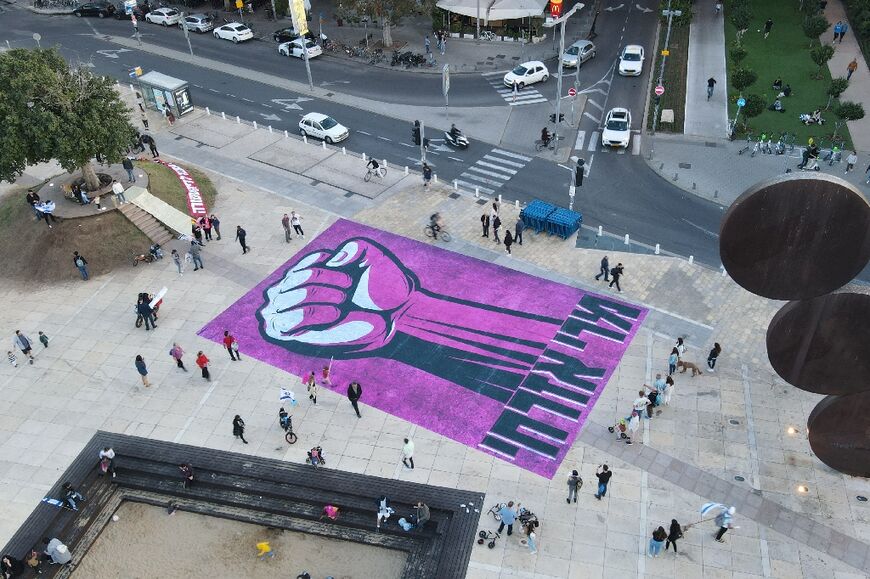Israel MPs push on with legal reforms decried as threat to democracy

Israel's parliament took another step Tuesday to push forward a legal reform package that has sparked mass protests against the hard-right government of Prime Minister Benjamin Netanyahu.
Lawmakers in a 3:00 am (0100 GMT) vote approved a bill in first reading that would, among other things, allow the Knesset to scrap Supreme Court rulings with a simple majority vote.
Netanyahu's government has argued the reforms are needed to limit judicial overreach, but protesters have decried them as threatening Israel's liberal democracy by weakening key checks and balances.
Demonstrations have flared for 10 weeks, and activists staged another sit-in early Tuesday outside government ministries in Jerusalem, briefly blocking access to staff.
"Stop the rush toward a messianic dictatorship and start working toward democracy," the protesters demanded before 10 of them were detained by police.
The latest measure was adopted by a 61 to 52 vote but will still need to be approved in a committee and then in second and third plenum readings before becoming law.
It would allow lawmakers to override Supreme Court decisions that strike down legislation with a majority of 61 of the 120-member parliament, and then deny the court the right to review such a move.
It would also make it harder for the Supreme Court to strike down legislation it deems to contravene Basic Laws, Israel's quasi constitution, by requiring the support of 12 out of 15 judges.
In an earlier overnight vote, lawmakers also approved a bill in first reading that would considerably limit the chances of a prime minister being declared incapacitated for any reason other than mental or physical impairments.
- 'Constitutional chaos' -
The government of Netanyahu, which includes ultra-Orthodox and extreme-right parties, introduced its judicial reform package in January.
Ten consecutive weeks of nationwide demonstrations have followed, with critics also charging that the proposed changes aim to protect Netanyahu as he fights corruption charges in an ongoing court battle.
Netanyahu and his justice minister argue the changes are needed to reset the power balance between elected politicians and the unelected judges on the powerful Supreme Court.
The reforms would also grant the ruling coalition more powers in appointing judges.
Israeli President Issac Herzog, whose role is largely ceremonial, has tried to broker dialogue on the conflict that has deeply split Israeli politics and society.
Herzog warned late Monday that the "constitutional and social crisis" was damaging the country and "could have diplomatic, economic, social and security repercussions".
Israel's opposition leader, centrist former premier Yair Lapid, has refused to engage in dialogue before the ruling coalition entirely freezes its push to turn the bills into law.
Lapid and three other Jewish opposition party leaders said Monday they would boycott the final votes on the legal reform bills if they reach their third readings. The heads of the two Arab opposition parties did not attend the meeting.
A group of prominent scholars have meanwhile sought to present to the parliament a compromise version of the reforms, declaring that the aim was "preventing constitutional chaos".






